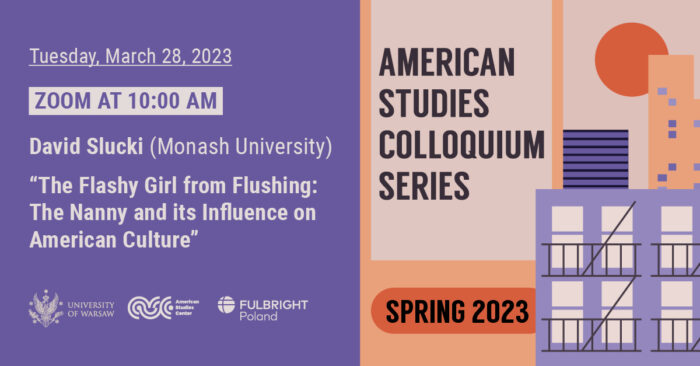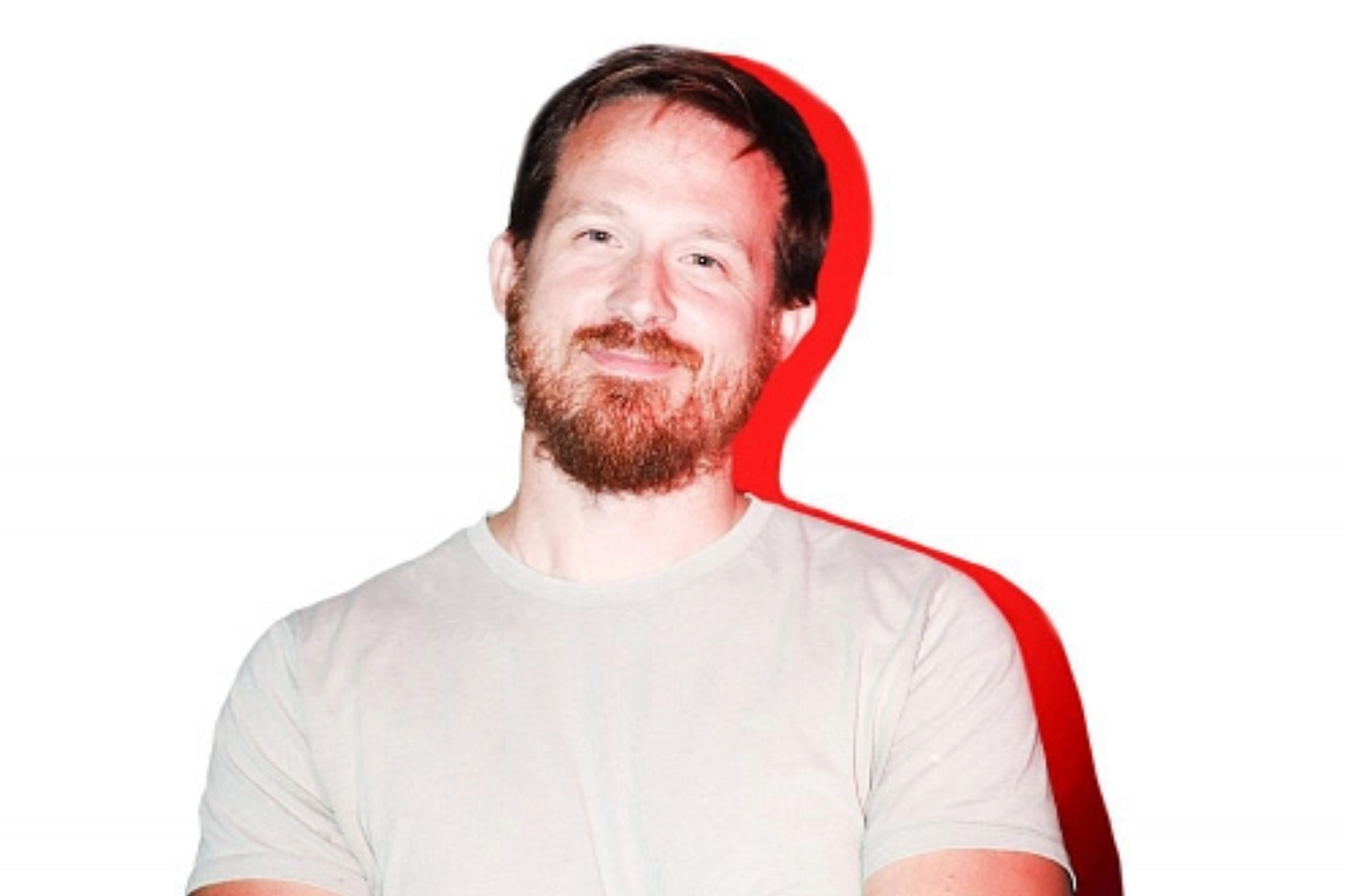We are delighted to invite you to the second lecture of the 2022/2023 Spring semester of the American Studies Colloquium Series:
David Slucki
(Monash University)
The Flashy Girl from Flushing: The Nanny and its Influence on American Culture
This is an online event.
Tuesday, March 28, 2023
at 10:00 a.m.
You can get 2 OZN points for participating in this event.
Check how to collect OZN points online here.

Where?
This lecture will be streamed online. To attend, click the button below or enter [link] into your browser, and join the meeting.
What?
Through much of the pandemic era, the iconic CBS sitcom, The Nanny, was not available on a major streaming platform in the United States. While audiences spent month after month of lockdown comfort bingeing favourites from the 1990s and 2000s like Friends, The Office, and Parks and Recreation, Fran Drescher’s melange of Yiddish-inflected Jewish wit, high-fashion, and camp was largely relegated to online memes and nostalgia. This changed in April 2021, when the new streaming service HBO Max finally brought the full run of the series into the streaming age.
During the lecture, I investigate the recent upsurge in interest in The Nanny and what it has to teach us about contemporary American Jewish life, and American life more broadly. I consider the potential impact of its adoption by a streaming service, and argue that the series is a milestone in popular culture representations of Jews, and particularly Jewish women. Many of the most celebrated recent series featuring wily, strong Jewish women, such as Broad City, The Marvellous Mrs. Maisel, and Crazy Ex-Girlfriend, would not have been possible without Drescher’s sharp-witted and fabulously dressed nanny. The Nanny marks a turning point for American Jewish culture, and signalled a sharp uptick in Jewish visibility in American life more broadly. Moreover, The Nanny broke new ground not only in terms of Jews, but in the way it brought a camp sensibility to mainstream audiences in a medium that is notoriously conservative. Drescher’s has long been considered a gay icon, and the queer overtones that punctuate the series are an important part of that image.
Who?
David Slucki is the Director of the Australian Centre for Jewish Civilisation, and the Loti Smorgon Associate Professor of Contemporary Jewish Life and Culture at Monash University. He is a historian who has written widely on Jewish life after the Holocaust, focusing particularly on survivors and their descendants, and on representations of the Holocaust. His publications include Sing This at my Funeral: A Memoir of Fathers and Sons (2019) and The International Jewish Labor Bund after 1945: Toward a Global History (2012). He is the co-editor of Laughter After: Humor and the Holocaust (2020) and In the Shadows of Memory: The Holocaust and the Third-generation (2016). He is currently completing a book manuscript on the significance of the sitcom The Nanny in American culture.




